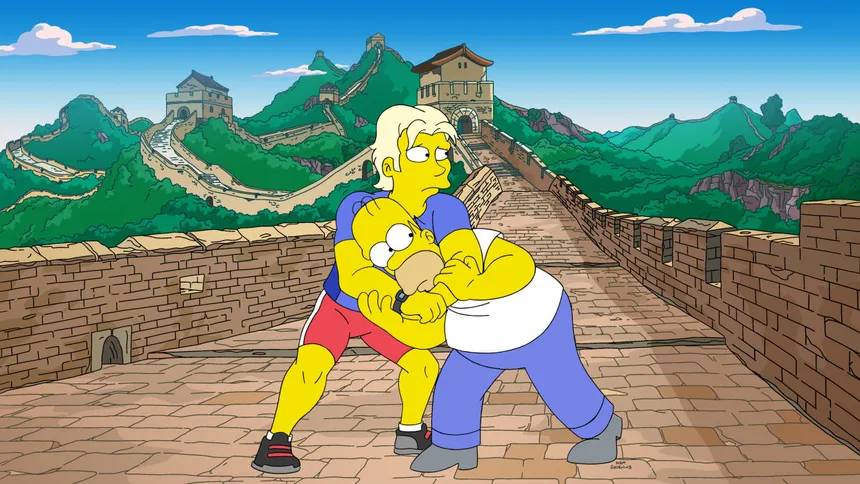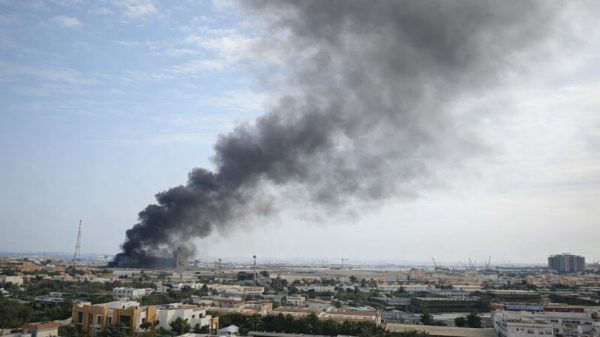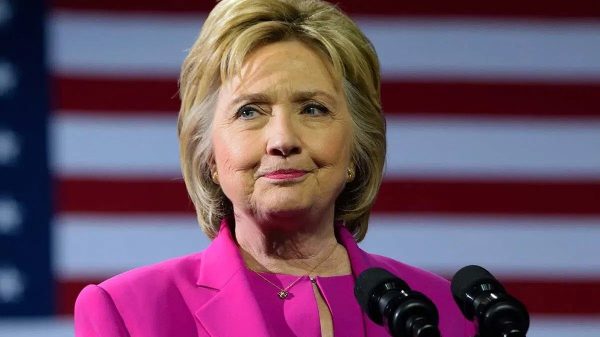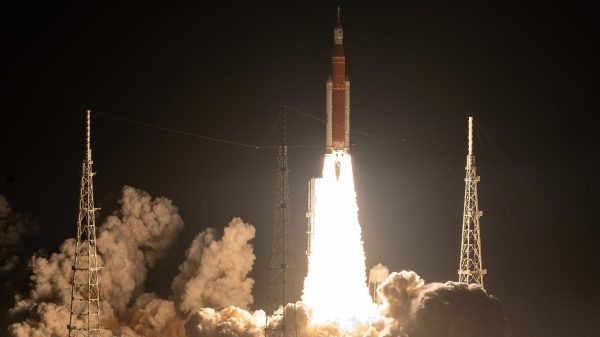Disney has taken an unusual step by removing an episode of the popular cartoon series The Simpsons from its streaming service in Hong Kong, citing concerns over the sensitive topic of “forced labor camps” in China. The episode in question, One Angry Lisa from The Simpsons’ 34th series, first aired on television in October but vanished from the Hong Kong Disney+ service without warning.
According to sources, the episode contained a scene where Marge Simpson, the main character’s wife, takes a virtual spin class with an instructor who is in front of a virtual background of the Great Wall of China. During the workout, the instructor comments, “Behold the wonders of China. Bitcoin mines, forced labor camps where children make smartphones.” The reference, while seemingly innocuous, is a sensitive topic in China, where the government has been accused of imprisoning hundreds of thousands of ethnic minorities, mainly Uyghurs, in detention camps in the western region of Xinjiang.
The Chinese government has consistently denied these allegations, claiming that the camps are education centers designed to teach Mandarin Chinese and vocational skills. However, Western governments and human rights organizations have repeatedly condemned China’s actions, calling for greater transparency and accountability.
The removal of the episode from Disney’s streaming service in Hong Kong comes amidst growing concerns over China’s increasing control over the semi-autonomous territory. Beijing has been steadily tightening its grip on Hong Kong since imposing a National Security Law in 2020, following massive pro-democracy protests in 2019. The law allows authorities to ban films, literature, and other forms of media deemed contrary to national security interests, raising fears over a weakening of civil liberties such as freedom of speech and the press.

Simpsons Episode Pulled from Hong Kong Streaming
Meanwhile, China’s film censorship regime has long been notorious for deleting scenes or banning content seen as inconsistent with the values promoted by the Chinese Communist Party. This includes removing references to democracy, human rights, and religious beliefs that are not deemed compatible with the party’s ideology.
The Simpsons has occasionally been screened in China, with clips still available on Chinese video sites. However, the scene from One Angry Lisa is noticeably absent from these platforms, suggesting that Chinese censors had already removed it to avoid any potential controversy. Disney’s decision to pull the episode from its Hong Kong service may indicate that the company is taking a cautious approach to navigate the complex political terrain of the region.
As the debate surrounding forced labor in China continues to unfold, The Simpsons’ latest controversy serves as a potent reminder of the delicate balance between artistic expression and political censorship. While Disney’s removal of the episode may be seen as a defensive move, it also raises questions about the limits of free speech and the extent to which media companies are willing to compromise their values in the face of political pressure.











































